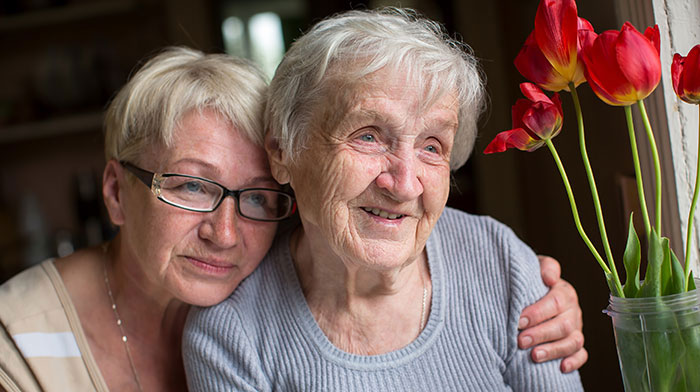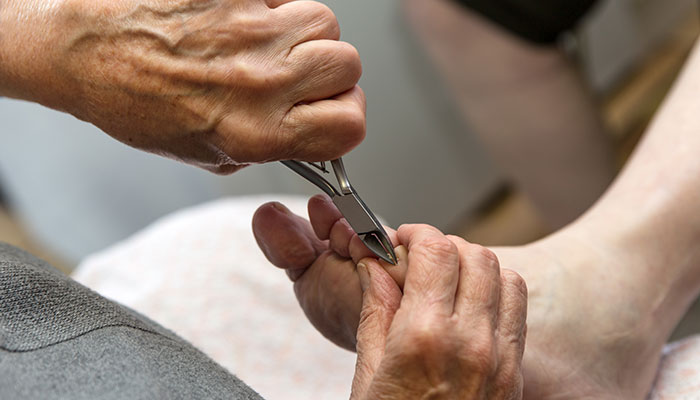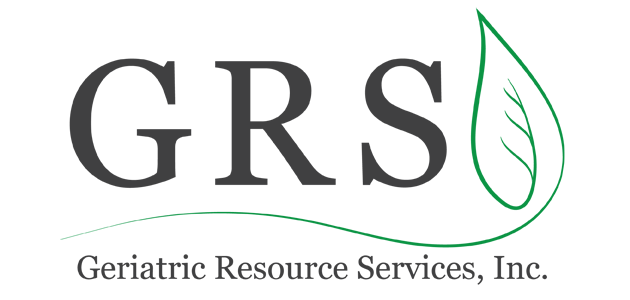Aging Well in the Upstate
Helpful tips for family caregivers
September/October 2017
One of the big challenges of caring for a loved one is the many losses that are simply part of the journey. In this month’s newsletter we look at the losses of caregiving and offer tips to soften the impact. We also look at the important topic of health care capacity. If your relative has dementia, he or she can probably make some decisions, but others, maybe not. How will you know when your loved one has lost the ability to process medical information effectively? Our last article looks at nail care. In some cases, this is a medical event. But in most it can be a delightful treat: mani-pedi anyone?
Caregiver loss: How well are you coping?
 As a family caregiver, you are likely experiencing many types of loss, each triggering normal, if uncomfortable, emotional responses.
As a family caregiver, you are likely experiencing many types of loss, each triggering normal, if uncomfortable, emotional responses.
Losing the person you love. Illness and frailty can change a person. So, too, can some of the behavior and personality changes that often occur with dementia. The absence of familiar ways to connect may bring up feelings of sadness and grieving well before your relative is physically gone.
Losing your former life. Have you had to drop everything to take care of your family member? Anger, resentment, frustration—and then guilt—are understandable responses to this very real sacrifice.
Losing your connections. Caring for a family member can be very isolating. You may feel alone with your responsibilities and feel that no one helps or understands. This experience often prompts anxiety and fear.
Here are some tips for handling these types of losses:
- Identify each loss and be gentle with yourself. Your emotions are perfectly normal. And even if you wish they didn’t exist, the best way to deal with them is to begin by acknowledging their impact. Writing in a journal may help.
- Talk with others. Consider a support group—in person, online, telephone. You are not the only one having to bear strong feelings. It may help to hear from others and learn their coping strategies.
- Control what you can. You can’t stop your relative’s illness, but learning more about it and what you can do will help you feel less at its mercy.
- Keep at least one thread of your “other life.” Don’t abandon yourself. Make it a priority to do something each week that keeps your connection to your “old” life alive. You need to safeguard your future.
Create positive memories. Experiment and find pleasant activities you can do with your relative now. These tender and joyful moments will be part of what you cherish when they are gone.
Return to topThe ability to make health care decisions
 The right to choose for oneself is deeply embedded in our culture. It is one of those inalienable rights of adulthood. The courts are very cautious about infringing on that right. You don’t want to be disrespectful, either. And yet you may notice changes in your relative’s judgment that have you concerned. For instance, can he or she still make wise decisions about personal health care?
The right to choose for oneself is deeply embedded in our culture. It is one of those inalienable rights of adulthood. The courts are very cautious about infringing on that right. You don’t want to be disrespectful, either. And yet you may notice changes in your relative’s judgment that have you concerned. For instance, can he or she still make wise decisions about personal health care?
Fortunately, this is not an all or nothing proposition. If you are concerned, talk to the doctor privately. Give an example of why you are concerned so he or she can give it special attention.
Physicians typically look at four aspects of the ability to make a sound decision. Can your loved one
- understand the information? Can he or she describe the diagnosis and the treatments being suggested?
- appreciate the seriousness? Can your loved one grasp the severity of the condition and why a treatment could be helpful?
- reason? Can the person weigh the pros and cons and describe why he or she wants a particular treatment?
- express a choice? Will your relative be consistent in his or her choice during repeated discussions?
If a doctor has doubts, he or she may simply turn to you for decisions if you accompany your loved one to visits. If you can’t be at appointments, then be sure you have the paperwork in place, such as a HIPAA release, that gives the doctor permission to talk with you.
If you think your relative may be approaching an inability to make wise health care decisions, get your paperwork ducks in a row. Meet with any family attorneys and with the person named as healthcare power of attorney, if that isn’t you. Alert them to your concerns and confirm the necessary documents or “triggers” needed to activate the switch in decision makers.
Return to topNail care
 Nails are important because they protect the delicate tips of our fingers and toes. They are much like hair: new growth is happening constantly. Nails grow in layers, below the surface of the skin. By the time you see them emerging from the base where the “moon” is, the nail cells themselves have died. (That is why it doesn’t hurt when you cut them.)
Nails are important because they protect the delicate tips of our fingers and toes. They are much like hair: new growth is happening constantly. Nails grow in layers, below the surface of the skin. By the time you see them emerging from the base where the “moon” is, the nail cells themselves have died. (That is why it doesn’t hurt when you cut them.)
Like an archeological record, our nails serve as a window to our health. They reflect poor nutrition, drug reactions, circulation problems, and age. They can also be the site of disease.
Normal changes of aging. As we age, our nails change in predictable ways. They
- grow more slowly, and often become thicker;
- appear duller and may turn yellow or opaque in color;
- can become brittle and split or break often.
Check with the doctor if you notice ridges, stripes, pits, changes in shape, discoloration, redness or pain around the nail.
These could be harmless changes. Or they could indicate kidney disease, oxygen problems, iron deficiency, infection, or even a special form of skin cancer.
Proper nail care
- Keep the nails short and clean. Fingernails should be cut in the shape of the finger. Toenails, more straight across.
- File down sharp edges with an emery board.
- Rub lotion on nails as well, when hands and feet feel dry.
Podiatrist or salon? Going to a salon regularly for a pedicure may be a lovely, inexpensive treat for your relative. The footbath and massage, along with nail trimming, is great for improved circulation. But if the person you care for has diabetes, an immune disorder, or a heart condition, it is best to go to a podiatrist instead. The podiatrist visit won’t come with quite the same pampering, but Medicare will pay for it and the doctor knows what to watch for and how to prevent infection.
Return to top
